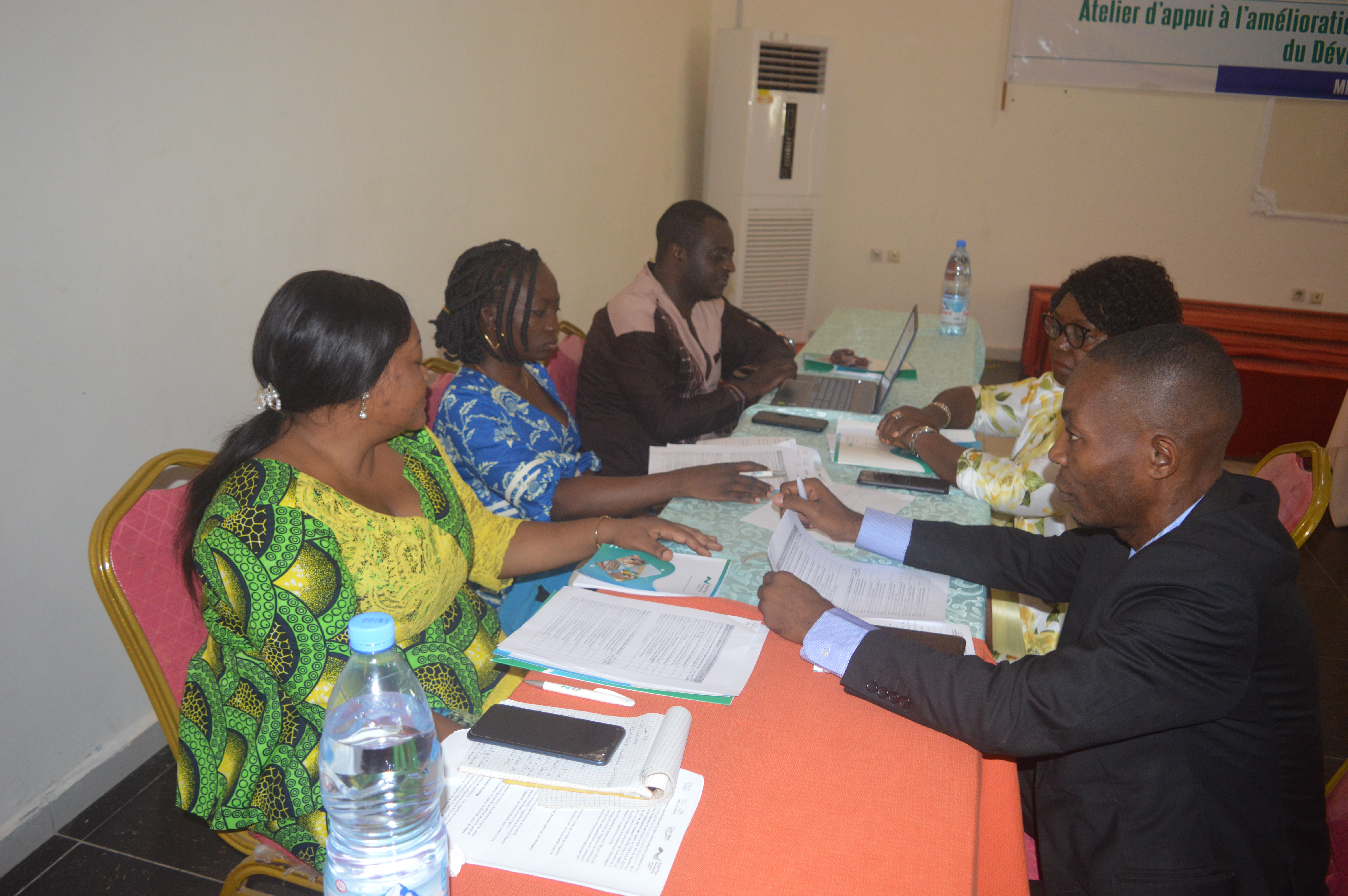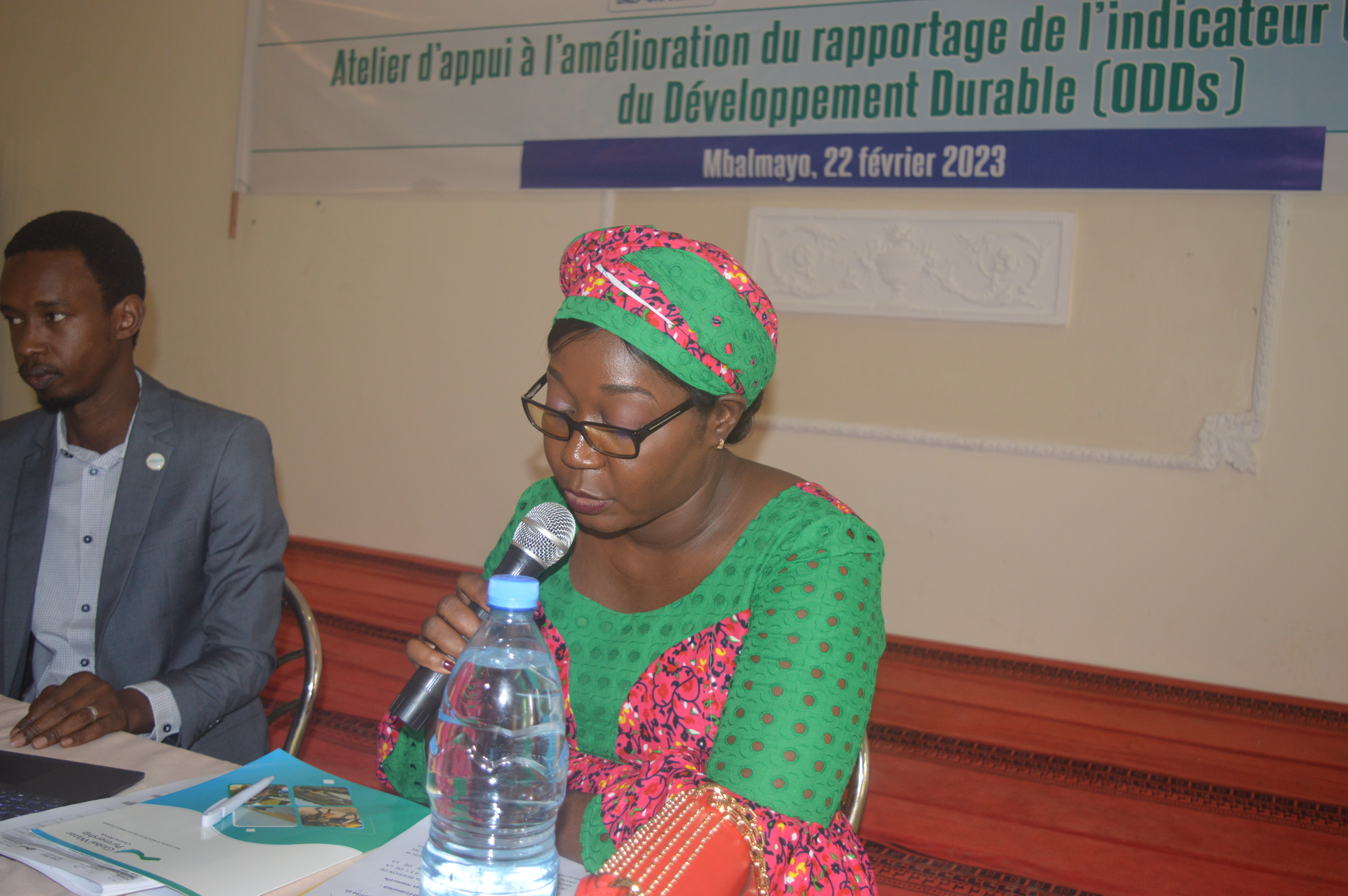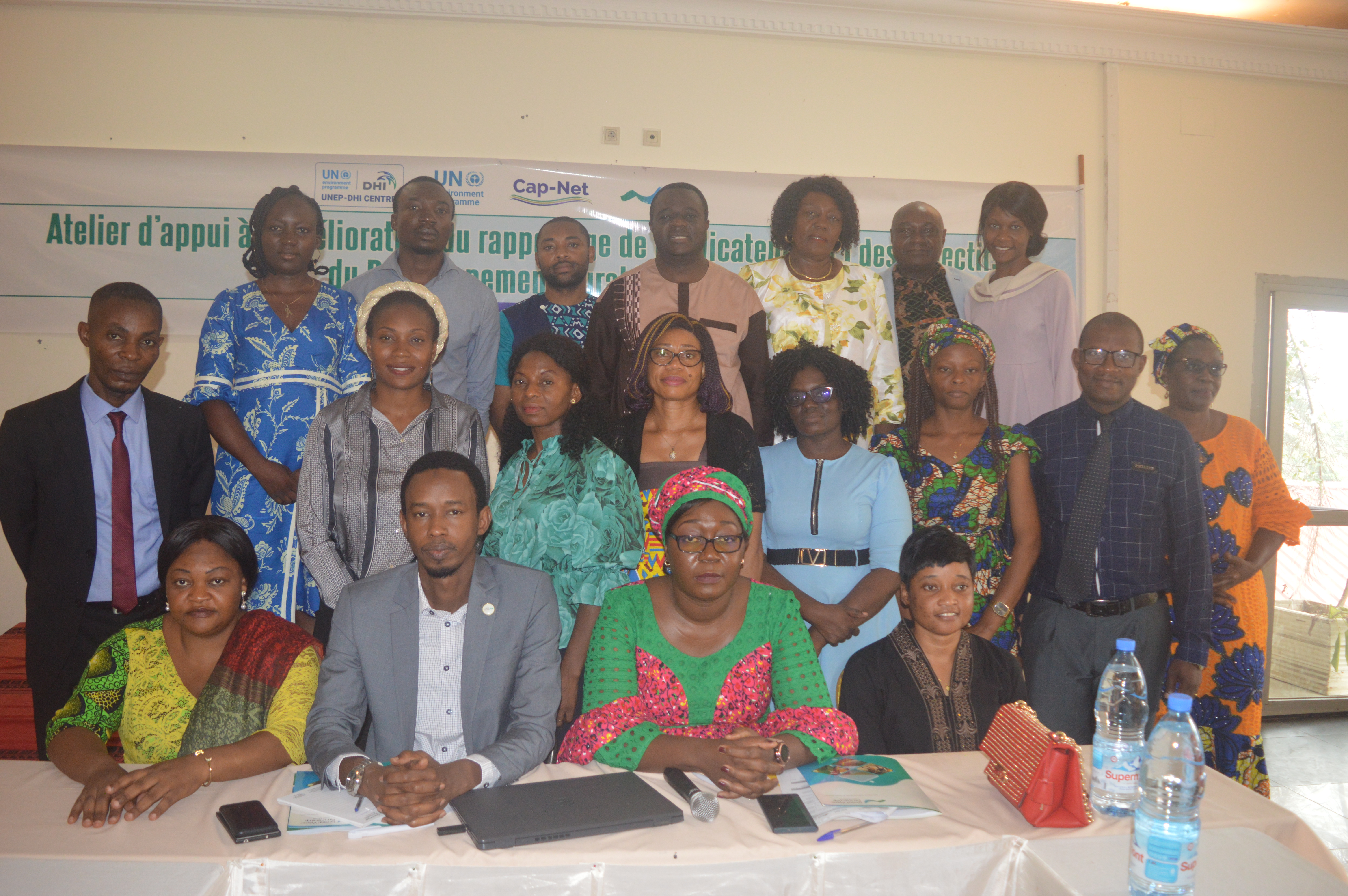The first (2017) and second (2020) reporting cycle on SDG 6.5.1 on the degree of implementation of Integrated Water Resources Management revealed that governments had challenges significantly considering gender in their water management processes at the local, national, and transboundary level. In response to this, GWP under the SDG 6 IWRM Support Programme carried out a study with 23 countries and produced a report titled, "Advancing towards gender-sensitive water resources management", which identified seven factors favourable to the integration of gender in IWRM.
To facilitate progress towards achieving the seven factors mentioned in the report, a gender checklist was elaborated to accompany the 2023 reporting cycle on SDG 6.5.1. This checklist is being tested in a selected number of countries before its integrated into the reporting cycle. Cameroon is one of these pilot countries.

The workshop brought together nineteen representatives from state institutions, CSOs, Research and Academic Institutions as well as the Private/ Parastatal sector. While speaking at the opening ceremony, Madam Ngo Biemble SDG 6.5.1 focal point at the Ministry of Water said, “Understanding the different roles and needs of water users is important in the management of freshwater, plus the 3rd principle of IWRM recognises the contribution of the women in availability, management and conservation of water”.

The participative workshop opened with a presentation by Djibrilla Mohamadou, regional coordinator GWP-CAf on SDG 6.5.1 and the country’s SDG 6.5.1 records from the 2020 reporting cycle with a focus on question 2.2d of the questionnaire which addresses the issue of integrating gender in IWRM plans and policies. GWP-CAf gender expert, Mr. Ngoro Bonaparte made a detailed presentation of the gender checklist providing guidance on the objective of the group exercise. The participants were then split up into four groups to fill out the checklist which had five parts, namely:
- Integration of gender in national laws, plans and policies on water
- Human resource and finance dedicated to the integration of gender in IWRM
- Participation and equality in the elaboration or implementation of IWRM
- Monitoring system to develop and collect data related to gender
- Education, Capacity-building and high-level engagement

At the end of the exercise the stakeholders provided vital information and recommendations which will guide and support to WACDEP-G program’s objective to help governments better integrate gender in IWRM plans and policies. While sharing their feedback on the exercise, one participant, Eyong Gloria said, “This exercise has improved my understanding of where Cameroon is in terms of gender balance in IWRM and the gender checklist will support the government in improving its SDG 6.5.1 score through addressing gaps identified in the process of filling out the template”.

